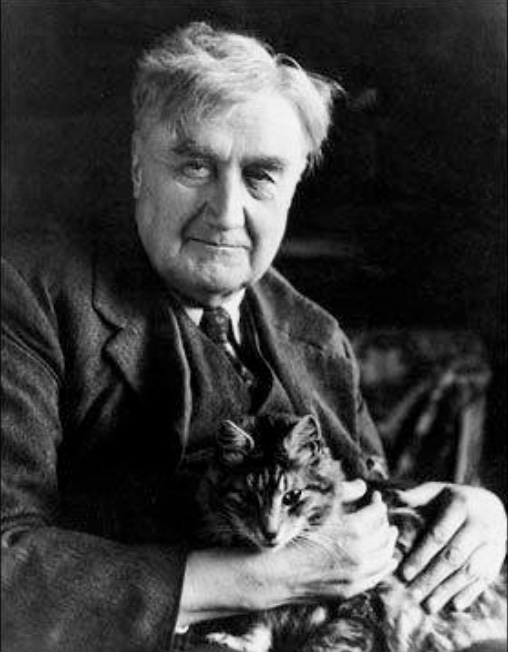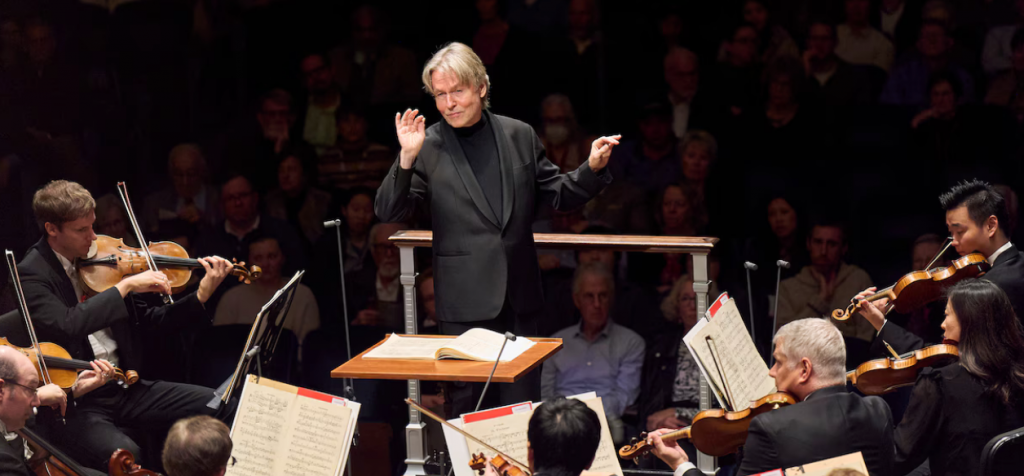by Daniel Hathaway
On Saturday at 11, carillonneurs Becky Everett & Keiran Cantilina play a concert in honor of David Osburn’s 30+ years of playing the bells at St Christopher by the River in Gates Mills, at 3 pm & 7 pm, BW Opera continues its run of Handel’s Radamisto in Playhouse Square, at 7:30 British violinist Braimah Kanneh-Mason plays Samuel Coleridge Taylor’s Violin Concerto in g with the Canton Symphony, and at 8, Finnish musicians Esa-Pekka Salonen (conductor & composer) and Senja Rummukainen (cellist) continue their visit to The Cleveland Orchestra (read our review of Thursday’s concert on cleveland.com here — photo by Roger Mastroianni).
Final performances on Sunday at 3 include BW Opera’s Radamisto and The Cleveland Orchestra with Salonen & Rummukainen. Other concerts include Cleveland Cello Society’s Scholarship winners (1pm at Judson Park), the Parma Symphony (3 pm at Valley Forge H.S.), Heights Chamber Orchestra with organist Kevin Jones (3:30 at St. Paul’s, Cleveland Hts.) and Lakeland Civic Band with saxophonist Tyler Young (4 pm, at Lakeland Community College in Kirtland).
RECENT DISCOVERIES:
While researching for the new edition of the Mozart Köchel catalog, scholars have turned up an early string serenade by the teenage composer in the Leipzig Municipal Library, and Deutsche Grammophon is recording three versions of the piece.
The Violin Channel writes, “Now referred to as ‘A Very Little Night Music,’ the piece is cataloged as Serenade in C, K 648 for two violins and bass. Lasting around 12 minutes, the string trio dates back to the mid to late 1760s and comprises seven miniature movements.” Read more here.
And the manuscript of a concerto for violin and strings by Imogen Holst, daughter of the British composer, has been discovered in the Archive of Britten Pears Arts in Aldeburgh. The piece will be premiered by Midori Komachi and the Elgar Sinfonia at St. Andrew’s, Holborn in London on November 24. The score has already been published by Faber Music. Read the Violin Channel story here.
WEEKEND ALMANAC:
FRIDAY

The range of RVW’s work was vast. To suggest just two radically different compositions that reflect his lifelong interests, let’s choose Along the Field and A Vision of Aeroplanes.
The former represents his close association with English folksong, of which he collected numerous examples and made arrangements for various combinations of voices and instruments. He so internalized that repertoire that he could write easily in the style, as in his settings of Edwardian poet A.E. Housman in Along the Field, simply but eloquently scored for solo voice and violin. Listen here to a performance of the cycle by soprano Marie Henriett Reinhold and violinist Dietrich Reinhold.
The other extreme finds Vaughan Williams exploring the full range of drama at his disposal as an early 20th century composer. Orchestrally, this expresses itself in his symphonies and in such works as Job, a Masque for Dancing, with its frightening musical depictions of Satan, but otherwise in his charmingly titled setting of the Vision of Ezekiel from the Hebrew scriptures for organ and chorus. The organ part is as fearsome for the keyboardist as the musical declamation is for the singers. Stay with it to the end in this performance by the University of Cambridge’s Clare College Choir.
SATURDAY
German violinist, clarino trumpet player and composer Johann Christoph Pezel departed this life on October 13, 1694, having served as Stadtpfeifer and Stadtmusicus (a member of the municipal wind band) in Leipzig and Bautzen. His music is frequently played these days by modern brass ensembles, but ensembles were more complex in Pezel’s time. As an example, listen to his Sonata Ciacona a 6 in a performance by ACRONYM here (there’s a score to follow).
In 1912 on this date, Moravian-American composer Hugo Weisgall was born in Ivancice, then part of the Austro-Hungarian Empire. He moved with his family to the U.S. at the age of eight, studying at Peabody and Curtis, and completing a doctorate in German literature at Johns Hopkins — which made him a valuable aide-de-camp to General George S. Patton during World War II.
In addition to his interest in Jewish cantorial music, Weisgall is known for his operas (especially Six Characters in Search of an Author) and extended song cycles, including Soldier Songs. The latter preserves a Wilfred Owen poem Weisgall set after investigating the mistreatment of Germans by Czechs in the hospital at Terezin. Listen here to Six Characters as performed by Chicago’s Lyric Opera Center for American Artists. There don’t seem to be any recordings of Soldier Songs — enterprising baritones, take note!
We highlighted English-born violist and composer Rebecca Clarke in the Diary on her birthdate on August 27, when we recommended a CIM video of her Viola Sonata. She died on this date in 1979 in New York City. Watch here another CIM performance, this time of her 1921 Piano Trio by the Hazel Trio (JuEun Lee, violin Richard Li, cello, and Jonathan Mak, piano) from May, 2019.



